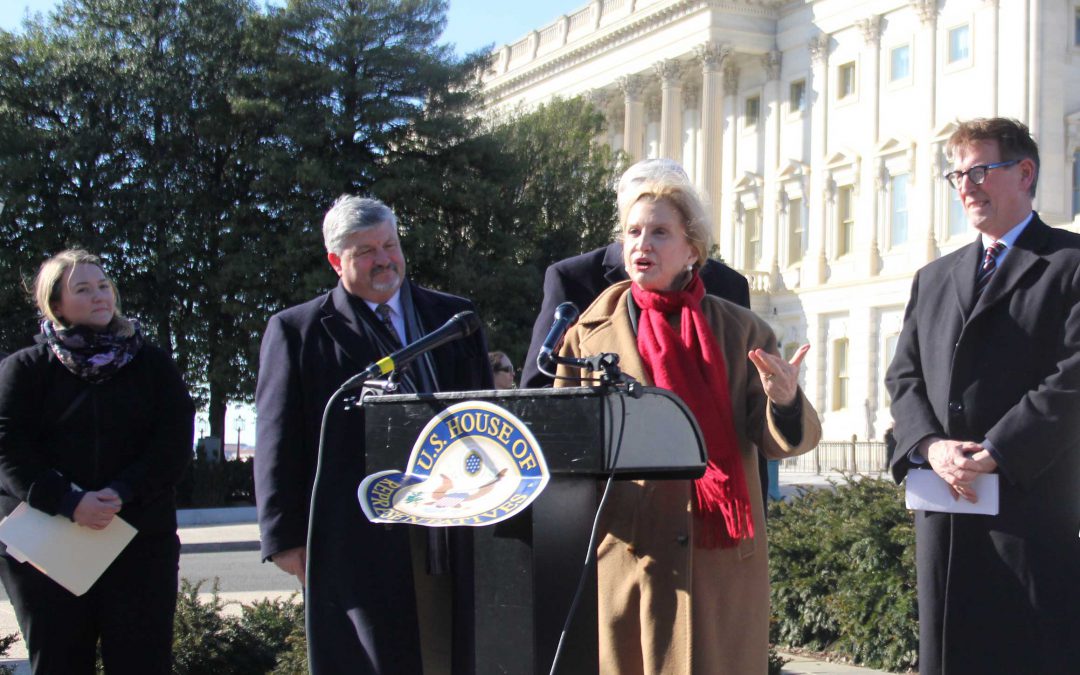WASHINGTON – Despite previous defeats of legislation to bring paid parental leave to federal employees, two determined House members – a Democrat and a Republican – said Monday they are trying again this year and hope to have an ally in Ivanka Trump.
The measure, sponsored by Reps. Barbara Comstock, R-Va., and Rep. Carolyn Maloney, D-N.Y., would provide six weeks of paid parental leave after the birth or adoption of a child. They limited the benefit to federal employees because it would have no budget impact because agencies plan on 52 weeks of pay for employees.
Other legislation has been introduced that would require private companies to provide paid parental leave.
“The great United States, when it comes to policies for working families, is far behind not only the industrialized world, it is far behind the world,” said Maloney while gesturing to map highlighting Papua New Guinea and the United States, the two nations that do not provide paid time away from work for the birth of a child.
“It’s time to change that.”
Currently federal employees can take up to 12 weeks of unpaid leave for the birth of a child. The bill would allow mothers and fathers to be paid for six of those weeks.
President Donald Trump met with Canadian Prime Minister Justin Trudeau on Monday to discuss the role of women in the workplace.
Trump, at the urging of his daughter Ivanka, was the first Republican to make paid maternity leave part of his platform.
Maloney and House Democratic Whip Steny Hoyer and believe Ivanka may become an ally in their fight to provide paid parental leave. Maloney claimed Ivanka expressed interest in the legislation.
“We’re optimistic that her father can reach common ground with her,” said Hoyer.
This is not the first time that Maloney has introduced the legislation. Most recently, she introduced the same bill in 2015, but it died in committee.
Hoyer said the billl is necessary to ensure that the federal workforce remains competitive with the private sector.
“We owe a great deal more to the hardworking men and women of the federal workforce then they are receiving,” he said. “Adopting this legislation would help us retain the best workers we have and recruit other talented Americans to serve their country in the civilian federal workforce.”
The Labor Department said about 12 percent of private sector workers are provided paid parental leave by their employers.
Maloney and Hoyer stressed that the bill would benefit families across the nation because 85 percent of federal workers live outside Washington.


